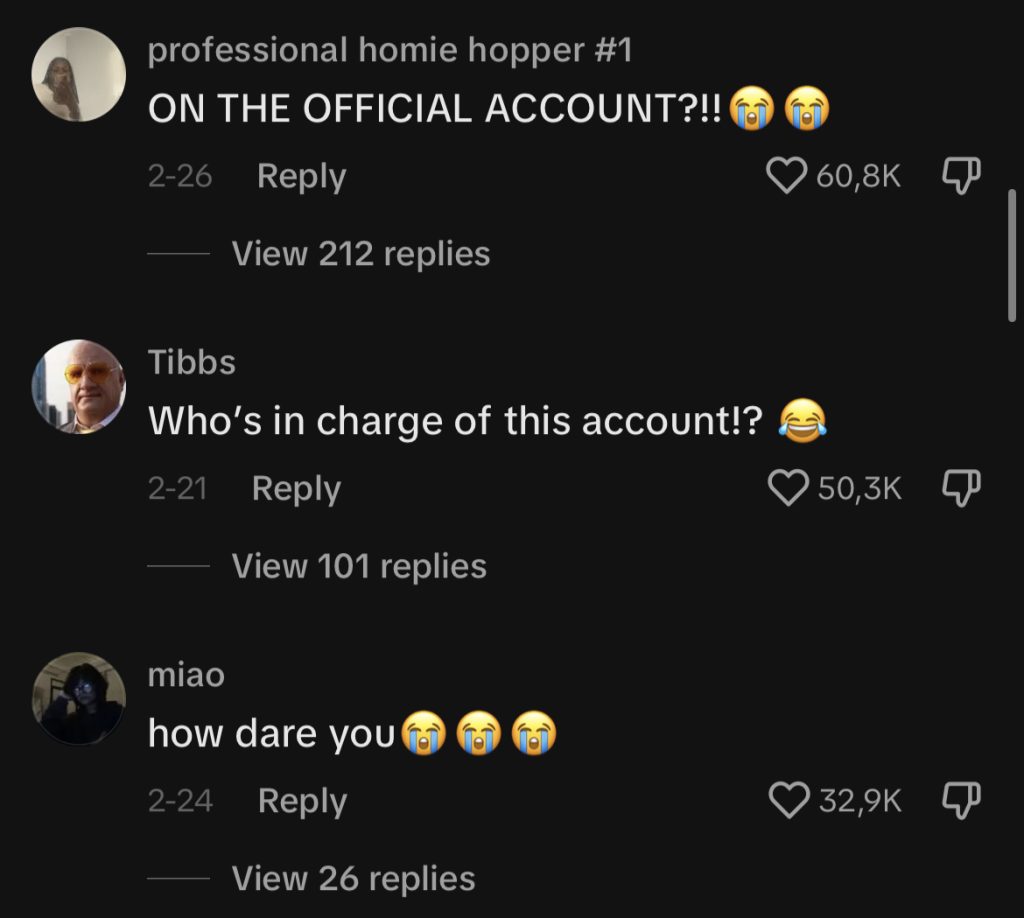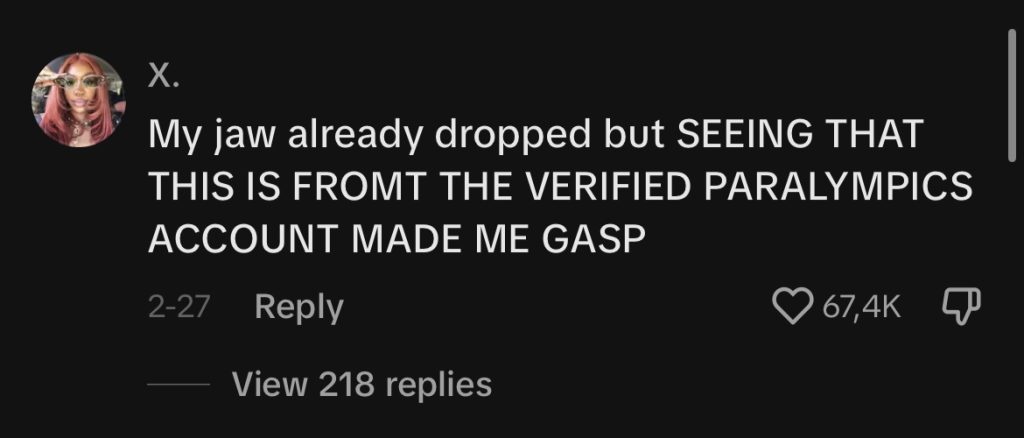Videos from the official TikTok account of the Paralympics has crossed my feed on different platforms on more than one occasion. Their videos often use clips of Paralympic athletes performing their sport, accompanied by a viral sound. Example. Their page generates quite a lot of traction, with many of their videos having millions of views and a good chunk of comments being something like this:


Notably, I have also wondered the same: Who’s in charge? How acceptable is this? Are the athletes aware and what do they think?
Laughing with and laughing at
A bigger controversy surrounding this TikTok account started in April of this year, when a popular video re-sharing account BarstoolSports shared a compilation of their videos. Many X (formerly Twitter) users expressed their concerns for the morality and ethical aspects of these types of videos. The main concern being the concept of “laughing with and laughing at”. If you look at their page, most videos are pointing out mishaps and funny moments, whereas if you look at the account for the Olympics – that is not the case.
As we can see, the tone for both of the accounts is quite different, which then adds another layer to the discussion and how acceptable these types of videos are. I do have to say, that the people who are able to determine whether this type of content is insensitive or not are people with disabilities, and I, along with others, can merely explore this topic, without giving a definitive answer.
Visibility and inclusivity
An article on BBC includes a statement from the International Paralympic Committee’s (IPC) spokesperson, who claims that the account is run by a Paralympian who does understand disability personally. Additionally, these types of videos attract a lot of attention and if we compare viewer ratings for Olympics and Paralympics, they are significantly lower, thus this way it shines more light on the Paralympic athletes.
One of my main curiosities in regards to this topic was the opinion of the athletes themselves as their opinion has the most weight in this conversation. Here’s what they told BBC:
- Jack Hunter-Spivey, a British Paralympic tennis player says that he perceives the videos with a dose of humour. He says that often Paralympic athletes are portrayed as inspirational (which they are), therefore it is nice for a change to make a light of the situation and be able to laugh at it.
- Another athlete, Jess Whyte, mentions that it is important to “normalise being comfortable around people with disabilities and to normalise the differences.”
- On the other hand, the third athlete mentioned in the article, footballer Sean Jackson, sees these type of videos as mocking and entertainment, when it should be about promotion of the athletes, focusing on the good things.
Other news outlets like CNN and NBC have also interviewed Paralympic athletes on this matter and opinions vary. Many of them, seem to be okay with it and see it as a way to promote the sports of disabled athletes, illuminating ways on how to be more inclusive and accommodating.
One little final thought
After reading the opinions of the athletes themselves and finding out that the account is run by an ex-paralympian, I think it is assuring to know that they feel quite positive about this content. At the end of the day, they are the ones featured in the videos and their voice matters the most in this discourse.
I do think it is important to keep in mind, that it might be easy to get carried away with this type of content and to add on to perpetuation of stereotypes, which could be harmful. I also believe that if the goal is to raise awareness, information (like their name and achievements) about athlete(s) shown in the video, should be presented.


Recent Comments